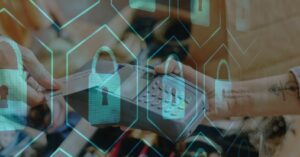The U.S. healthcare sector remains one of the most heavily targeted by cybercriminals – a situation clearly reflected by major attacks in recent years. Healthcare organizations also bear the burden of surging attack costs, with the average cost of a healthcare data breach climbing to $9.77 million per incident in 2024, the highest across all industries.
Several factors contribute to the industry’s prime target status. For one, healthcare organizations hold an unparalleled volume of protected health information, financial details and other highly sensitive data that is exceptionally valuable on the dark web. In fact, cybercriminals view such data as a goldmine due to its utility for identity theft, medical fraud, and extortion. On top of this, many healthcare providers rely on outdated legacy systems and a vast array of internet-connected medical devices that can create numerous vulnerabilities. In addition, the critical nature of healthcare services makes organizations more likely to pay ransoms to avoid disruptions in patient care, a leverage point ruthlessly exploited by cybercriminals.
Change Healthcare and Other Recent Cyberattacks
In February 2024, UnitedHealth Group and its subsidiary Change Healthcare were hit with a cyberattack of “unprecedented magnitude,” according to the Department of Health and Human Services (HHS). The attack caused widespread disruptions to pharmacies, hospitals, and healthcare providers across the U.S., severely impacting prescription processing, insurance claims, and payment systems. The hackers deployed ransomware that encrypted files and extrapolated the protected health information of an estimated 190 million individuals. UnitedHealth Group reported the cost of the attack to be billions of dollars.
In another major incident in 2024, Ascension Health, one of the largest nonprofit health systems in the U.S., fell victim to a major ransomware attack, which disrupted clinical operations at the majority of its 140 hospitals across multiple states. The attack forced Ascension to divert ambulances, close pharmacies, take critical IT systems offline and resort to pen and paper to record patient information. leading to patient care delays and increased risk of errors. In its final tally, Ascension reported that 5.6 million patient records were breached in the attack.
Going back to 2022, CommonSpirit Health suffered a cyberattack between September 16, 2022, and October 3, 2022 that still reverberates to this day. CommonSpirit is the second-largest U.S. non-profit hospital chain, with facilities spanning 24 states. The ransomware attack reportedly affected 164 of its facilities, leading to patient service disruptions, several lawsuits and other issues.
Healthcare Leaders Seek IT Innovations to Tighten Security
Healthcare’s cybersecurilty issues continue in 2025, with the sector reporting a 20 percent jump in data breaches in the first half of 2025, according to a July 16 report from the Identity Theft Resource Center. The report showed 283 data breaches affecting healthcare facilities in the first half of 2025, up from 236 during the same period in 2024.
Recognizing the ongoing threat, U.S. healthcare organizations are increasingly prioritizing cybersecurity, exploring enhanced IT services to further boost protection. Industry leaders see heightened security as among their highest priorities, noting the critical importance of protecting patient data as well as the financial health of their organizations. Following data breaches, organizations can face immense expenses, including HIPAA fines, costs for forensic investigations, data recovery and legal fees.
New ECS Edge Connector Offers Rock-Solid Security and Data Protection
The ECS Edge Connector is purpose-built to meet the demanding connectivity and security requirements of today’s healthcare environments. Leveraging private 5G networks, it ensures always-on, high-performance communication while delivering Zero-Trust cybersecurity essential for protecting sensitive patient data.
Designed to separate patient, staff, and device traffic, the ECS Edge Connector enables HIPAA compliant segmentation, rapid deployment in clinics or mobile care units, and seamless scalability as healthcare networks expand.
Its plug-and-play simplicity empowers IT teams to maintain uptime and security without complexity—making it the trusted edge solution for modern healthcare operations.
Healthcare Use Cases Include:
Telemedicine & Remote Monitoring
- Enables secure, high-speed data transfer for virtual consultations and real-time patient monitoring
- Maintains consistent service even during internet outages with built-in 5G cellular failover
Electronic Health Records (EHRs)
- Protects sensitive patient data with integrated Zero-Trust cybersecurity
- Ensures fast, compliant access and transmission of records across care teams and facilities
Medical Imaging
- Supports rapid, secure transfer of large imaging files such as MRIs and CT scan
- Minimizes latency to streamline diagnosis and treatment workflows
Mobile & Temporary Clinics
- Deploys quickly in remote, pop-up, or mobile care units with plug-and-play setup
- Scales easily with network needs across multiple facilities or during health emergencies
HIPAA-Compliant Network Segmentation
- Separates traffic between patient devices, staff systems, and IoT endpoints
- Enhances data protection and simplifies compliance without added complexity
Smart Hospital Infrastructure
- Optimizes performance for connected devices like environmental monitors and alert systems
- Reduces downtime, improves operational efficiency, and supports just-in-time care delivery
Reliable, Resilient Network Backbone
- Provides always-on connectivity via 5G for uninterrupted care operations
- Supports real-time communication between clinical applications, EHRs, and IoT devices
For more information about how Edge Connector can provide next-level security for your healthcare operations, please click here.







